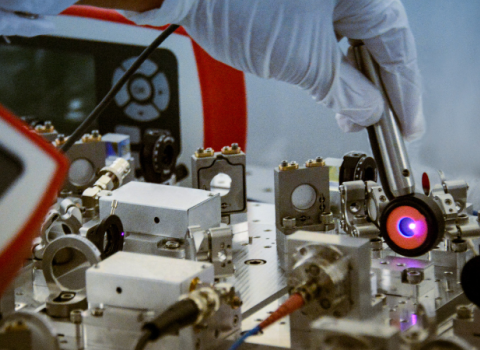The race for a viable quantum computer – “the most exciting in science today” – needs enormous collaborations, Professor Ian Walmsley argues.
Writing in today’s Financial Times, Imperial’s Provost notes that “The complexity of some of the hurdles are arguably more challenging than those that were solved at the Large Hadron Collider, the world’s most powerful atom smasher. Disparate networks of researchers, entrepreneurs, capital and governments will have to compete and collaborate all over the world.
“Yet too much commentary, especially in the UK and Europe, fixates on where quantum innovation and commercialisation is happening.”
This so-called “brain drain” argument is “nonsense”, he writes. “It misunderstands the global nature of science and innovation, and underplays the UK’s exceptional strengths in quantum technology.”
Welcoming competition
He argues that “We should welcome, not fear, competition, as well as being open to collaboration. From lunar exploration to cancer research, it’s how the best science and innovation comes to life.”
Professor Walmsley, a quantum physicist, also serves as Director of the UK’s Networked Quantum Information Technologies Hub.
He observes that “the UK has a decades-long head start in quantum technologies. Consistent support from research councils and university departments have spurred crucial breakthroughs. These leaps in fundamental science — all from British laboratories — are the foundation of today’s global industry. It is what has drawn pioneers in quantum metrology such as Ed Hinds back to the UK from the US.
“The British government’s foresight in founding the National Quantum Technologies Programme six years ago accelerated research and development, and stimulated private investment. Total UK government investment has now reached £1bn.”
The full opinion piece can be read in the Financial Times.
This communication was first published 21 August by Imperial College London.





 A unique international forum for public research organisations and companies to connect their external engagement with strategic interests around their R&D system.
A unique international forum for public research organisations and companies to connect their external engagement with strategic interests around their R&D system.